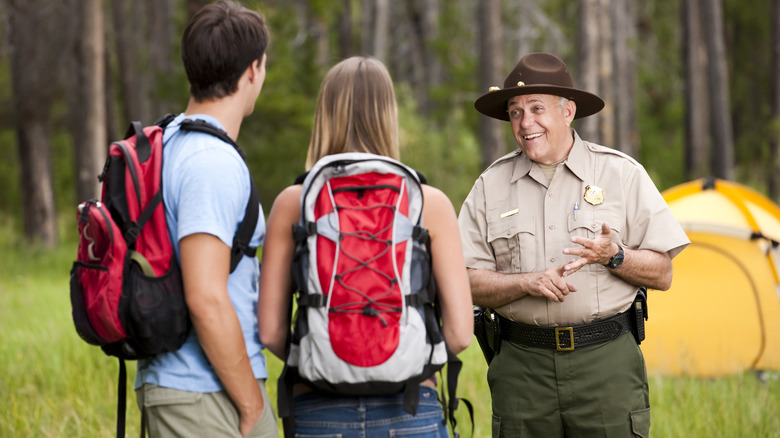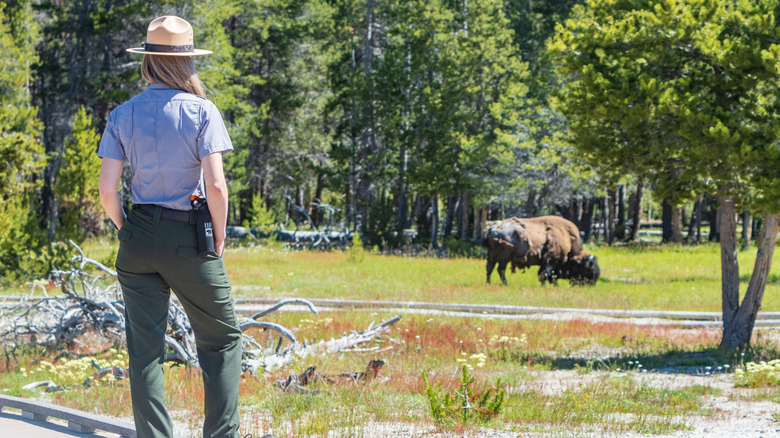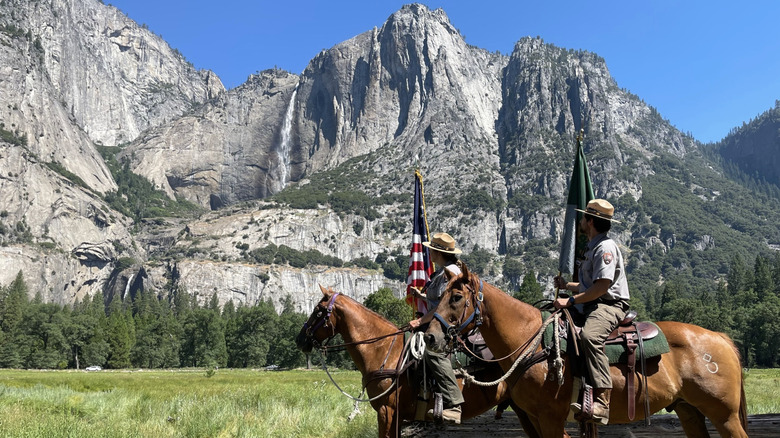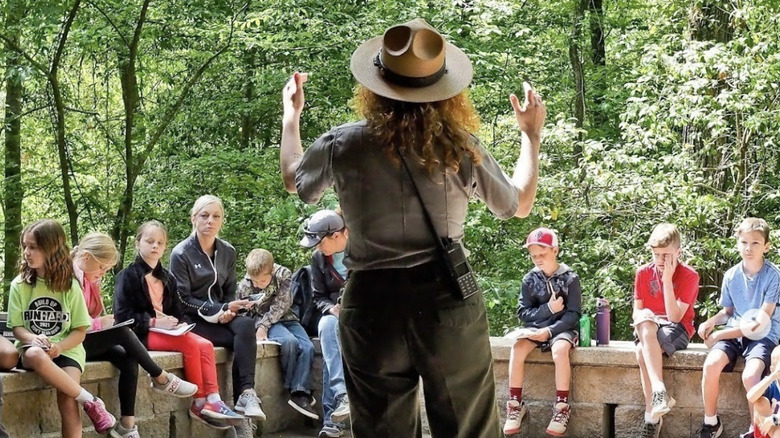The Downsides Of Working As A Park Ranger You Should Know Before Applying
If you're a national park enthusiast, chances are you've wondered what it would be like to work as a park ranger. Maybe you participated in the Junior Ranger Program as a kid, or national park trips led to your interest in wild plant and animal life. If that's the case, then being a national park ranger might seem like the coolest job in the world. You get paid to protect and serve the country's most beautiful sites, while sharing your love and appreciation for them with others.
But while this may seem like a dream job, there is a dark side of working as a National Park Service ranger. You won't just get to frolic across fields and explore the wilderness. It's hard work that often goes underappreciated. Even though you've probably had a lot of great interactions with park rangers, you may not realize that most work alone a majority of the time. Work-life balance is nearly nonexistent, especially during the busier seasons. There are tons of paperwork to fill out and reports to write. Some parts of the job are definitely not ones to romanticize. So, if you are interested in becoming a National Park Service ranger, here are some things you need to know.
National park rangers don't get paid well
A difficult aspect of becoming a national park ranger that most people don't realize is that the pay is almost comically low. Federal park rangers' salaries are based on a General Schedule (GS) scale, which has various levels. New hires are most likely to start at the GS-5 level, which requires a four-year degree, related coursework of certain semester hours, or one year of working experience equivalent to GS-4.
The starting salary for those hired at GS-5 is $27,705 and can go up to $36,021. Applicants with a higher level of education and-or experience may be allowed to start at a higher GS level, which will allow for a bit of a pay increase. However, the highest starting salary for the top level, GS-11, is $66,027, which is better than GS-5, but still not the best. The average ranger makes a salary of $38,660, and the top 10% take home about $85,000.
The work is seasonal
The work of a park ranger encompasses a variety of responsibilities, including campground operations, permit issuance, and seasonal maintenance. These help keep the parks running smoothly for the millions of visitors who come through. But another frustrating aspect of a park ranger's job is that you may be out of work most of the year. Most park ranger jobs are seasonal and only require activity during the busiest months. As a result, fewer staff are needed in the off-season.
The work is great for folks looking for a side gig, but many who become park rangers do so for their love of the parks, hoping it will become more than just a summer job. There is also the added financial strain to consider. You'll have your dream career, but it's seasonal, and you'll likely need a second job to cover expenses. Fortunately, there are opportunities for working up to a full-time position.
Your holidays and weekends will be booked up
Though the job is seasonal, you will be booked and busy during the months you are required to work. You might as well say goodbye to your vacation plans and let your friends know you likely won't be able to go out on weekends. While the best time to visit most national parks is during the summer months, a seasonal position will often have you working for six months at a time. Depending on your position, you will likely have to come in on weekends and holidays.
This schedule makes it difficult to maintain a healthy work-life balance. Your social life will likely take a hit. The situation can be even more difficult if you have kids or other family members you look after. If this is a dealbreaker for you, consider conducting informational interviews with current and-or past rangers to get an idea of what your schedule would look like and how flexible supervisors tend to be.



